 Your new post is loading...
 Your new post is loading...
Maggie Haberman started working at the New York Times in 2015 — with just one little problem. She didn’t know what she was supposed to be doing there.“ I was looking for a lane, so I picked up Trump because nobody seemed very interested in Trump,” Haberman said on the latest episode of Recode Decode, hosted by Kara Swisher. “I knew him and I knew his people.” Just two years later, she’s one of the NYT’s best-known reporters thanks to her coverage of Trump’s campaign and, now, his presidency. But for most of her career, Haberman had dreamed of one day being the Times’ chief New York correspondent, covering the city’s “broken” political system. Speaking with Swisher at the 2017 Texas Tribune Festival, along with Washington Post reporter David Fahrenthold, Haberman said she learned “the number one rule” about Donald Trump while working at the New York Post, which he would call frequently as a “source” of gossip about himself. “In his brain, two things are true,” she said. “No one speaks for him except him, even if he actually has a spokesman, and he believes that facts can be changed so that they can be something other than what you thought they were a day ago.”
MADRID — “Nos encanta la verdad.” We love the truth. Political fact-checking has existed in the United States for many years. FactCheck.org was established in 2003, and The Washington Post Fact Checker and PolitiFact were launched in 2007. In recent years, this movement representing a new form of accountability journalism has exploded around the globe. Now, there are 126 fact-checking organizations in 49 countries. Clearly, voters in many countries care about and want to know the truth. About 190 fact-checkers from 54 countries attended the fourth annual Global Fact-Checking Summit, July 5-7, 2017. The International Fact-Checking Network at Poynter Institute hosted the summit. The first meeting of fact-checkers from around the world took place in 2014, with 50 fact-checkers. Now the community has grown so much that we needed a “speed meeting” session for introductions....
Imagine opening your morning newspaper (itself a novelty these days) and finding a story about, not just life, but entire civilizations on another planet, attributed to one of the world’s foremost astronomers. Would you believe it, or might you suspect that some “alternative facts” had found their way to your doorstep? Back in 1835, many readers in New York ended up believing just such a tale. The New York Sun, then one of the city’s leading newspapers, printed an elaborate six-part series about exotic animals living on the moon (including human-like creatures with wings), purportedly discovered through a gigantic newfangled telescope. The source of the information was Sir John Herschel, who was an actual real-life astronomer but had nothing whatsoever to do with the Sun’s scoop. Rough image of lithograph of “ruby amphitheater” described in the New York Sun newspaper in August 1835. Public domain image.Somebody at the Sun (just who remains something of a mystery) made the whole thing up, in an effort to goose its circulation. The hoax did eventually unravel, although the newspaper never retracted the story. Today, of course, we are battling similarly fake news, found not only in dark corners of the Internet but in mainstream venues such as Facebook. Yet, even in our “post-truth” world, it is still virtually unthinkable that a major newspaper in a major U.S. city would publish information that it knew to be demonstrably false....
Apparently fake news is a thing in France, too. And apparently it was rampant during the run up to the just concluded presidential election. Emmanuel Macron won by a large margin but it seems there was a lot semi-truths being thrown about. To help combat the spate of fake news surrounding the election, J. Walter Thompson Paris worked with French news organization Liberation to create CheckNews.fr , a search engine staffed by actual human journalists for three days leading up to the election. These journalists answered any search query made with links to multiple sources providing truthful answers to each query....
When Americans encounter news on social media, how much they trust the content is determined less by who creates the news than by who shares it, according to a new experimental study from the Media Insight Project, a collaboration between the American Press Institute and The Associated Press-NORC Center for Public Affairs Research. Whether readers trust the sharer, indeed, matters more than who produces the article —or even whether the article is produced by a real news organization or a fictional one, the study finds. Who shares an article on social media influences whether people trust it, research shows As social platforms such as Facebook or Twitter become major thoroughfares for news, the news organization that does the original reporting still matters. But the study demonstrates that who shares an article on a social media site like Facebook has an even bigger influence on whether people trust what they see....
Narrative gravity is like confirmation bias, “the tendency to search for, interpret, favor, and recall information in a way that confirms one’s beliefs.” But with narratives, it’s less about personal beliefs and more of a bandwagon effect, where everyone processes and interprets information through a framework that is both easily digestible and broadly accepted. Narrative gravity is what makes a startup’s story clock tick. Narrative gravity exists beyond tech. It’s why Senator John McCain is still considered a maverick and why Tiger Woods’ big comeback is always right around the corner. The gravitational pull of a prevailing narrative is hard to resist....
The topic of “fake news” continues to show strong earned media results. In February, “fake news” was the strongest rising topical trend when it came to earned media, according to mediaQuant, an earned media researcher. Overall, discussion around fake news rose 23% -- now scoring a media rating of 94; it had earned a 93 score in January. Over the previous six months, it had been averaging a 71 media rating score. Earned media is defined as press interviews and appearances on all media, including TV, radio, online and print publications.The topic of fake news has produced 42.4 million “mentions” and 64.2 million over the last 12 months. Media value estimated for coverage of “fake news” has amounted to $270.3 million in February. Over the last 12 months, mediaQuant says its media value has been $388.7 million....
More than five years ago, Tom Rosenstiel and Bill Kovach released their guide to helping news consumers sort fact from fiction. “Blur: How to Know What’s True in the Age of Information Overload” covers many topics — how to evaluate sources, how to know whether a news account is complete, how to verify questionable claims — that are timely given the avalanche of information that circulated during this election year. One line in the first chapter is particularly prescient given the recent influx of fake news (wholly false stories) and misinformation (false or inaccurate information): “Citizens have more voice, but those who would manipulate the public for political gain or profit — be it corporations or the government — have more direct access to the public as well.” Rosenstiel could never have predicted the details of how this would soon play out: teenagers in Macedonia, among others, profiting off fake news they created about the 2016 presidential election that spread quickly through social media. How would he amend his book given all that’s happened in the last year?...
We — John Borthwick and Jeff Jarvis — want to offer constructive suggestions for what the platforms — Facebook, Twitter, Google, Instagram, Snapchat, WeChat, Apple News, and others — as well as publishers and users can do now and in the future to grapple with fake news and build better experiences online and more civil and informed discussion in society.
Key to our suggestions is sharing more information to help users make better-informed decisions in their conversations: signals of credibility and authority from Facebook to users, from media to Facebook, and from users to Facebook. Collaboration between the platforms and publishers is critical. In this post we focus on Facebook, Twitter, and Google search. Two reasons: First simplicity. Second: today these platforms matter the most.
We do not believe that the platforms should be put in the position of judging what is fake or real, true or false as censors for all. We worry about creating blacklists. And we worry that circular discussions about what is fake and what is truth and whose truth is more truthy masks the fact that there are things that can be done today. We start from the view that almost all of what we do online is valuable and enjoyable but there are always things we can do to improve the experience and act more responsibly.
In that spirit, we offer these tangible suggestions for action and seek your ideas.
Google has agreed to fund a project to develop automated fact checking tools amid anger over the prevalent of fake news websites during the US presidential election.
UK fact checking organisation, FullFact, has announced it has been awarded €50,000 (£43,000) by the tech giant’s Digital News Initiative to build the first “fully automated end-to-end fact checking system”.
In a statement, FullFact explained that the system will have two main features.
One will inform readers if something reported as fact has already been proven inaccurate.
The other mode will fact check claims automatically using Natural Language Processing and statistical analysis in real-time – something FullFact said has never been done before – by highlighting the text and having a factbox appear when the user hovers over it....
|
Sometimes an international offensive begins with a few shots that draw little notice. So it was last year when Melvin Redick of Harrisburg, Pa., a friendly-looking American with a backward baseball cap and a young daughter, posted on Facebook a link to a brand-new website.
“These guys show hidden truth about Hillary Clinton, George Soros and other leaders of the US,” he wrote on June 8, 2016. “Visit #DCLeaks website. It’s really interesting!”
Mr. Redick turned out to be a remarkably elusive character. No Melvin Redick appears in Pennsylvania records, and his photos seem to be borrowed from an unsuspecting Brazilian. But this fictional concoction has earned a small spot in history: The Redick posts that morning were among the first public signs of an unprecedented foreign intervention in American democracy.
I’m here to preach the gospel of quality news, and to talk about how combating fake news and hate news can not only be good journalism, but… good business.” Thus, Daily Beast editor-in-chief and managing director John Avlon opened MediaPost's Publishing Insider Summit, with a keynote addressing the hot-button issue that has come to symbolize America’s dysfunction and threaten its democracy — while mapping a way forward. Avlon began by acknowledging the decline of trust in media, pointing to a number of trends, including the rise of partisan media, which was an “attempt to balance implicit bias on the part of mainstream media with explicit bias,” as well as the fragmentation of the broader media environment....
Much like it did before the elections in France Sunday, Facebook is taking steps to curb fake news and delete fake accounts prior to the upcoming elections in the U.K. The social network announced in a Facebook Security note last month that it took action against some 30,000 fake accounts in France, and it ran full-page ads in several newspapers in that country—including Le Monde, Les Échos, Libération, Le Parisien and 20 Minutes—containing tips on how users can spot fake news, similar to the information it began sharing atop its News Feed earlier in April. Facebook took similar steps in the U.K., with BBC reporting that ads ran in newspapers including The Times, The Guardian and the Daily Telegraph providing 10 red flags for users of the social network to watch out for in determining whether posts are real or fake....
Good things can happen when a crowd goes to work on trying to figure out a problem in journalism. At the same time, completely crowdsourced news investigations can go bad without oversight — as when, for example, a group of Redditors falsely accused someone of being the Boston Marathon bomber. An entirely crowdsourced investigation with nobody to oversee it or pay for it will probably go nowhere. At the same time, trust in the media is low and fact-checking efforts have become entwined with partisan politics. So what would happen if you combined professional journalism with fact checking by the people? On Monday evening, Wikipedia founder Jimmy Wales launched Wikitribune, an independent site (not affiliated with Wikipedia or the Wikimedia Foundation) “that brings journalists and a community
of volunteers together” in a combination that Wales hopes will combat fake news online — initially in English, then in other languages....
When Twitter user Rory Cellan-Jones asked Google Home if Barack Obama is planning a coup, the digital assistant device responded by detailing a bogus conspiracy theory about the former president plotting a communist scheme to take over the government.
"According to details exposed in Western Centre for Journalism's exclusive video, not only could Obama be in bed with the communist Chinese, but Obama may in fact be planning a communist coup d'état at the end of his term in 2016," the smart home device's robotic voice explained, though it stumbled over the word "d'etat."
But this outlandish response isn't restricted to Google Home. Rather, it highlights a problem with how the search engine responds to queries in the form of "featured snippets" — short, direct answers highlighted at the top of its search results....
Dear President Trump, As journalists and founders of a network of media professionals in over 180 countries, we are seriously concerned with your attacks on the news media and your disregard for the truth itself. Your attempt to discredit legitimate media organizations, as well as the barring of media companies from your press conferences last week, are an insult to our esteemed colleagues who risk their lives every day to report the truth, and to the United States Constitution you took an oath to defend. Attacking the news media with a broad brush and attempting to delegitimize media outlets critical of the government is exactly how Hugo Chavez and Vladimir Putin began their presidencies. It was the first step they took in weakening democracy in Venezuela and Russia. By driving a wedge between the people and the media, and by using the power of the presidency to intimidate journalists, these leaders built corrupt, authoritarian regimes with few checks on their power and limited recourse against human rights violations. Thanks to our Constitution, our deep cultural tradition of press freedom, and the surging desire of the American people to access quality journalism, those tactics will not work in the United States....
What can this small chapter tell us about what’s to come? That Trump will be what columnist Frida Ghitis of the Miami Herald calls “the gaslighter in chief” — that he will pull out all the stops to make people think that they should believe him, not their own eyes. (“Gaslighting” is a reference to the 1940s movie in which a manipulative husband psychologically abuses his wife by denying the reality that the gaslights in their home are growing dimmer and dimmer.) “The techniques,” Ghitis wrote, “include saying and doing things and then denying it, blaming others for misunderstanding, disparaging their concerns as oversensitivity, claiming outrageous statements were jokes or misunderstandings, and other forms of twilighting the truth.”...
“Slightly disconcertingly, Lewis says he is “so thrilled” by the controversy. This is not because American voters were misled but because Facebook and Google have been embarrassed and forced to reconsider the complex algorithms they deploy to present news articles to their users. It’s a matter of schadenfreude. Lewis has spent much of the three years since he became chief executive at Dow Jones and publisher of the Wall Street Journal “badgering away” at Google and Facebook, trying to persuade them to change their news distribution methods. “We kept warning them, saying ‘This is an accident waiting to happen – you are treating fake news in the same way as you are treating Wall Street Journal news. This is going to end up biting you.’ And so here it is, biting them!”...
The day after the election, news began swirling around social media that New York Times columnist David Brooks had called for President-elect Donald Trump’s assassination. Snopes managing editor Brooke Binkowski had a feeling it was fake. Because, come on now, would a prominent columnist for a reputable news outlet really make that kind of comment? Snopes has made its business out of correcting the misunderstood satire, malicious falsehoods, and poorly informed gossip that echoes across the internet — and that business is booming. Traffic jumped 85 percent over the past year to 13.6 million unique visitors in October, according to comScore. The site supports itself through advertising, and in the last three years it has made enough money to quadruple the size of its staff.
Sure enough, a bit of Snopes reporting revealed that Brooks had written a column saying Trump would likely resign or be impeached within a year. A news item published on The Rightists claimed Brooks had then said in an interview for KYRQ Radio New York that Trump should be killed. Snopes found The Rightists doesn’t even pretend to traffic in truth. In the site’s “about” section, it describes itself this way: “This is HYBRID site of news and satire. part [sic] of our stories already happens, part, not yet. NOT all of our stories are true!” What’s more, the story’s facts didn’t add up. For example, the site claimed Brooks had made the comments on a radio station — KYRQ — that didn’t exist.
Paul Horner is a professional fake news writer, whose completely made-up story about the Amish committing their vote to Trump got over 134,000 likes on Facebook; his story about Obama signing an executive order to invalidate the election results has over 250,000 likes. This week, The Washington Post’s Caitlin Dewey interviewed Horner--who is stunned that his work gets accepted as true. “I think Trump is in the White House because of me. His followers don’t fact-check anything -- they’ll post everything, believe anything. His campaign manager posted my story about a protester getting paid $3,500 as fact. Like, I made that up. I posted a fake ad on Craigslist… I thought they’d fact-check it, and it’d make them look worse. I mean that’s how this always works: Someone posts something I write, then they find out it’s false, then they look like idiots. But Trump supporters -- they just keep running with it! They never fact-check anything!”...
|



 Your new post is loading...
Your new post is loading...



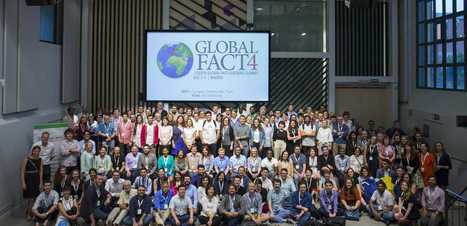



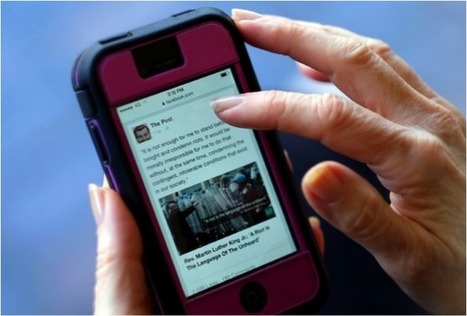


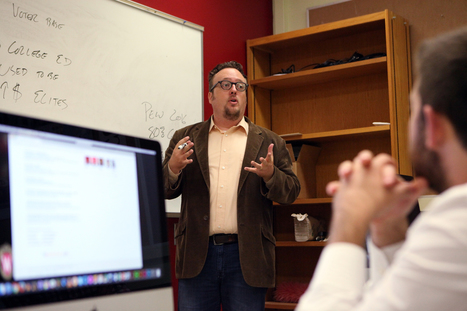
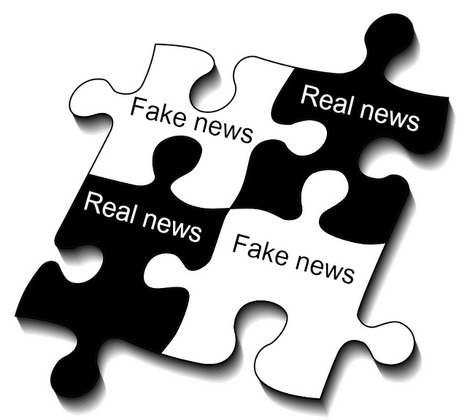
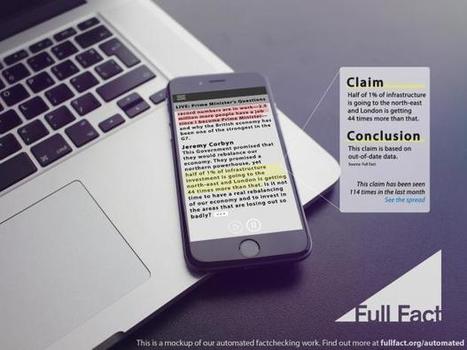


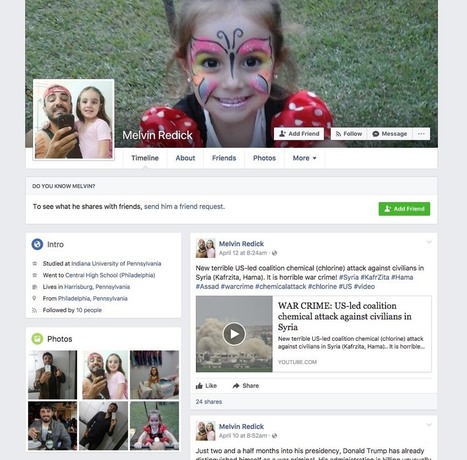


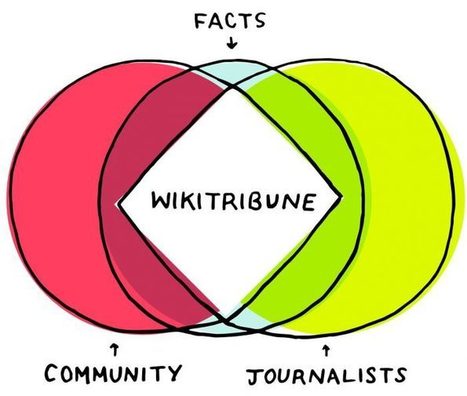
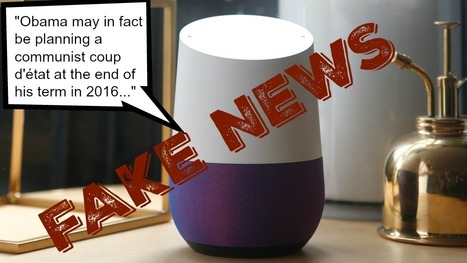
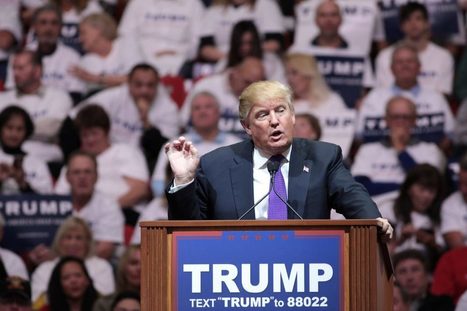









On the latest Recode Decode, the two journalists explain how their careers set them up to cover the Trump Era.